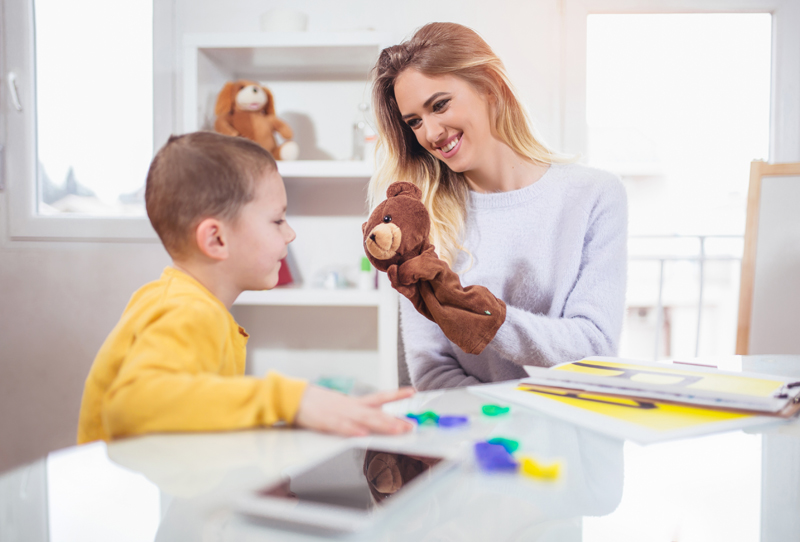Individual Therapy, Group Therapy, Assessment
Applied Behaviour Analysis (ABA) is a learning therapy based on the science of behaviour, with the goal of improving social and behavioural skills. This approach involves many different techniques that are used to help understand why certain behaviours happen, how they are triggered by our surroundings and how the learning of behaviours is achieved. We apply these techniques with the goal of positive social behaviours and preventing or changing behaviours that are destructive or affect continuous improvement.
All of these techniques focus on the events leading up to a behavioural event (what happens before a behaviour occurs, either verbal, physical, a light, a sound or any other surrounding factor, externally or internally), the resulting behaviour and consequences (what happens after the behaviour, either positive reinforcement of the desired behaviour or no reinforcement of the inappropriate behaviour). Little Treasures’ students have many opportunities to learn and practice behavioural skills every day.

The ABA approach uses the strategies of behavioural observation and positive reinforcement through the learning of behavioural skills. Students receive positive reinforcement (specific and unique to each student) for demonstrating socially appropriate behaviours and useful skills. Over time, students recognize reward as encouragement to continue using appropriate behaviours and skills which lead to meaningful behavioural change. In contrast, students receive no reinforcement for behaviours that are inappropriate or prevent further learning.
The ABA approach is provided through either 1:1 teaching or group instruction. Little Treasures emphasizes the approach by creating unique treatment plans to meet the needs of each student. The goal of the ABA approach is to help each student strengthen skills that will help them become more independent in everyday social settings. An in-depth pre-assessment is performed of each child's skills, needs, interests, preferences and family situation. We use this information to outline specific behavioural goals the child will work towards, and are determined based on the age and ability level of the child. These goals work towards improving many different skill areas, such as:
- Communication and language development
- Social functioning skills
- Self-care (i.e. hygiene, diet, etc.)
- Daily living skills
- Motor skills
- Improve attention, focus and memory
- Learning and academic functioning
- Decrease or prevent problem behaviours
Our approach divides the behavioural skills into these areas, and learning progresses from simple skills (e.g. imitating simple sounds) to more complex skills (e.g. having a conversation).
Students are assessed based on their progress towards their goals and developing the required skills. We regularly meet with the student's family to review their progress and where the program should be adjusted.

